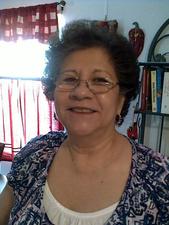
Ticket to Work success stories continue to celebrate the achievements of adults with disabilities who found their path to a better future with help from Social Security’s Ticket to Work program. The latest story features Armida Stokes, a mother of four who wore several hats as a cook, a cashier and a day care worker, until a severe back injury made it impossible for her to continue working. Armida received Social Security Disability Insurance (SSDI) while she sought medical treatment and went through rehabilitation. She struggled to raise her children, and when her daughter was unable to care for her own baby, Armida agreed to raise her granddaughter as well.
She knew she could not support her family while relying only on SSDI, and as she recuperated, considered her options for work again. Armida was uncertain whether she could maintain a 40-hour work week and regain the independence she enjoyed before having to rely on SSDI. “I knew I had to earn more… because of my grandchild’s needs,” she recalls. “But I was afraid of losing the benefits we relied on.”
She decided to consult a qualified professional who could help her understand the impact that full-time employment would have on her disability benefits. Armida had received information in the mail from Social Security about Ticket to Work and Work Incentives, and called the number provided for the Ticket to Work Help Line. She was referred to a Social Security- approved service provider known as an “Employment Network” (EN). ENs across the country offer a range of support services that help people prepare for, find and maintain employment. Recipients of Social Security disability benefits who are age 18 through 64 are eligible to receive these free services through the Ticket to Work program. With help from her EN, Armida learned about rules called Work Incentives that make it easier for adults with disabilities to work and receive benefits from Social Security during their transition into the workforce.
“What most compelled me to take that leap of faith was learning I could keep my Medicare,” she explains. “[I also learned] that if for reasons related to my disabilities I was no longer able to do the job, I could go back on disability benefits! This rule, [known as Expedited Reinstatement], made the difference for me.”
It became clear that she would not have to face her future alone. “The staff [at my EN] was wonderful. They answered all my questions about benefits and work, provided career counseling, advocated for me, and helped me communicate with Social Security,” she says. “I felt really supported.”
Armida is bilingual and speaks fluent Spanish. With this skill, previous experience in customer service, and the support of her EN, she was well-equipped for the job she landed in 2010. “I work as the Spanish Customer Relations Representative for a vitamin supplement company and I love my job,” she says. “Now I’m able to care for my granddaughter and provide the things she needs…. The paycheck has helped me have more choices…more than I had living off of a fixed income. We do a lot of things we couldn’t do before…and [I feel] more stable,” she says.
Increased earnings from full-time work have replaced Armida’s SSDI payments, and she feels she is on her way back to a better place and financial independence. “I would definitely encourage people who feel they are ready for work that it is ok [to try]…,” she says. “Before, I didn’t know whether I could go back [to the workforce]. But Ticket to Work and Work Incentives helped level the playing field for me!”
With support from the Ticket program, Armida found her path to a better future. Find yours. Visit our Success Stories page for more inspiring stories, and learn how Social Security’s Ticket to Work program can help you.
To learn more about the Ticket to Work program, visit www.socialsecurity.gov/work, email us at support@chooseworkttw.net or call 1-866-968-7842 (V) or 1-866-833-2967 (TTY).





Comments are closed.